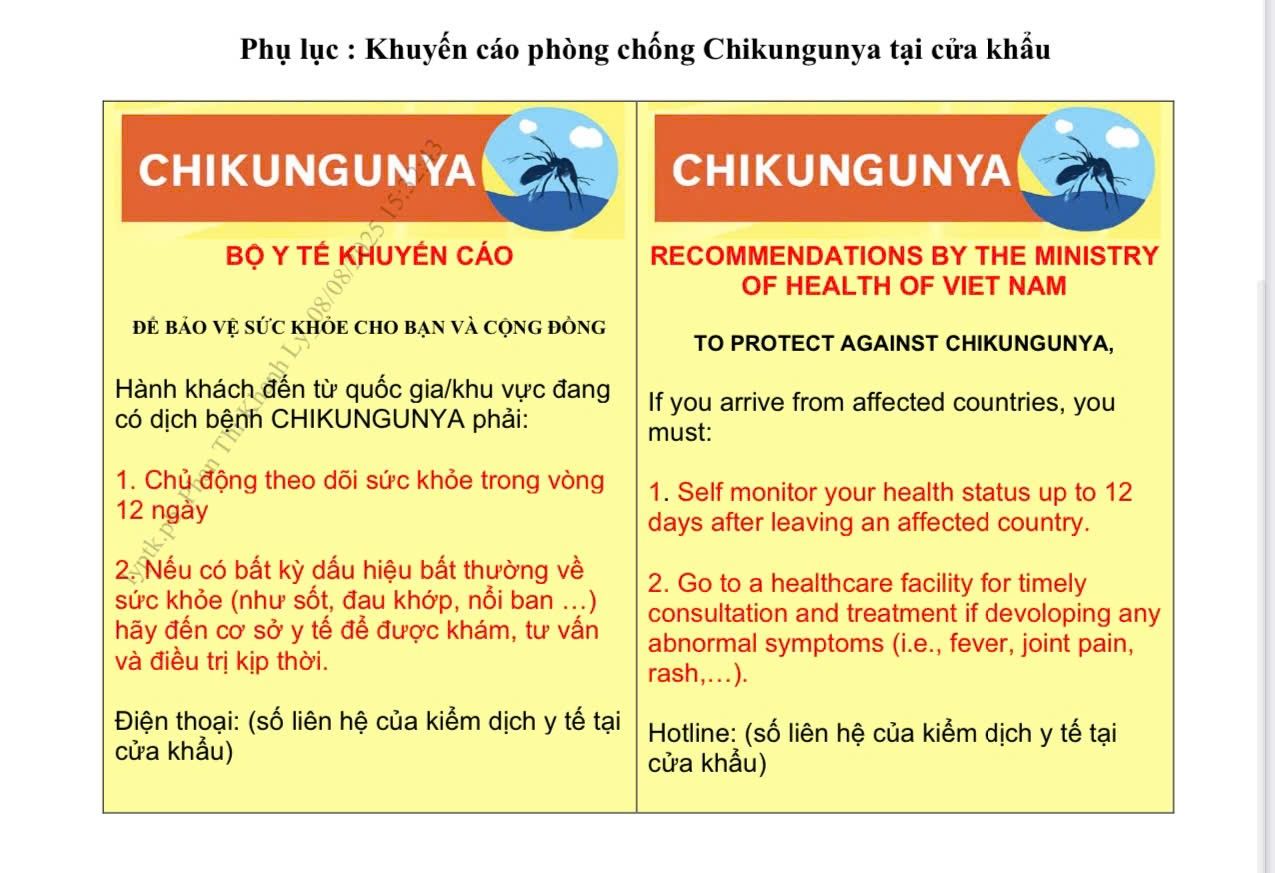The epidemic has also spread to some parts of Africa, South Asia and Europe, especially in southern China.
In Guangdong province (China), in the first half of 2025, more than 4,800 cases of Chikungunya were recorded. This is the largest outbreak ever in the area.
To proactively prevent and control the spread and outbreak of the epidemic in our country, the Ministry of Health recommends that provinces and cities proactively strengthen the prevention and control of Chikungunya.
Chikungunya is an acute infectious disease caused by the Chikungunya virus, transmitted from sick people to healthy people through the bite of a herring mosquito - also a mosquito that transmits dengue fever.
Common symptoms include high fever, joint pain, headache, fatigue and rash, most patients recover after a few days to a week, however, some cases may experience joint pain that lasts for many months.
There is currently no vaccine or specific treatment, treatment is mainly to support and reduce symptoms.
To proactively prevent and control Chikungunya, the Ministry of Health strongly recommends that people take the following disease prevention measures:
+ People from countries and regions where Chikungunya is on the rise:
Proactively monitor your health for 12 days.
If there are any unusual signs of health (such as fever, joint pain, rash, etc.), you should go to a medical facility immediately for timely examination, consultation and treatment.
+ People in households and residential areas need to implement the following well:
Cover all water containers so that mosquitoes do not lay eggs.
Every week, do measures to kill catfish/ribbon by releasing fish into large water containers; washing medium and small water containers, flip-flip non-water containers; replace bottle water/cotton ball; put salt or oil or insect-killing chemicals in the bowl of sponge.
Every week, remove waste materials and natural water hoses that do not let mosquitoes lay eggs such as bottles, jars, pieces of bottle, coconut shells, broken pieces, old tires/shells, bamboo holes, leaf callows, etc.
Sleeping on a mat, wearing long clothes to prevent mosquito bites even during the day.
Actively coordinate with the health sector in spraying chemicals for epidemic prevention and control.
When you have a fever, go to a medical facility immediately for examination and treatment advice. Do not arbitrarily treat at home.









